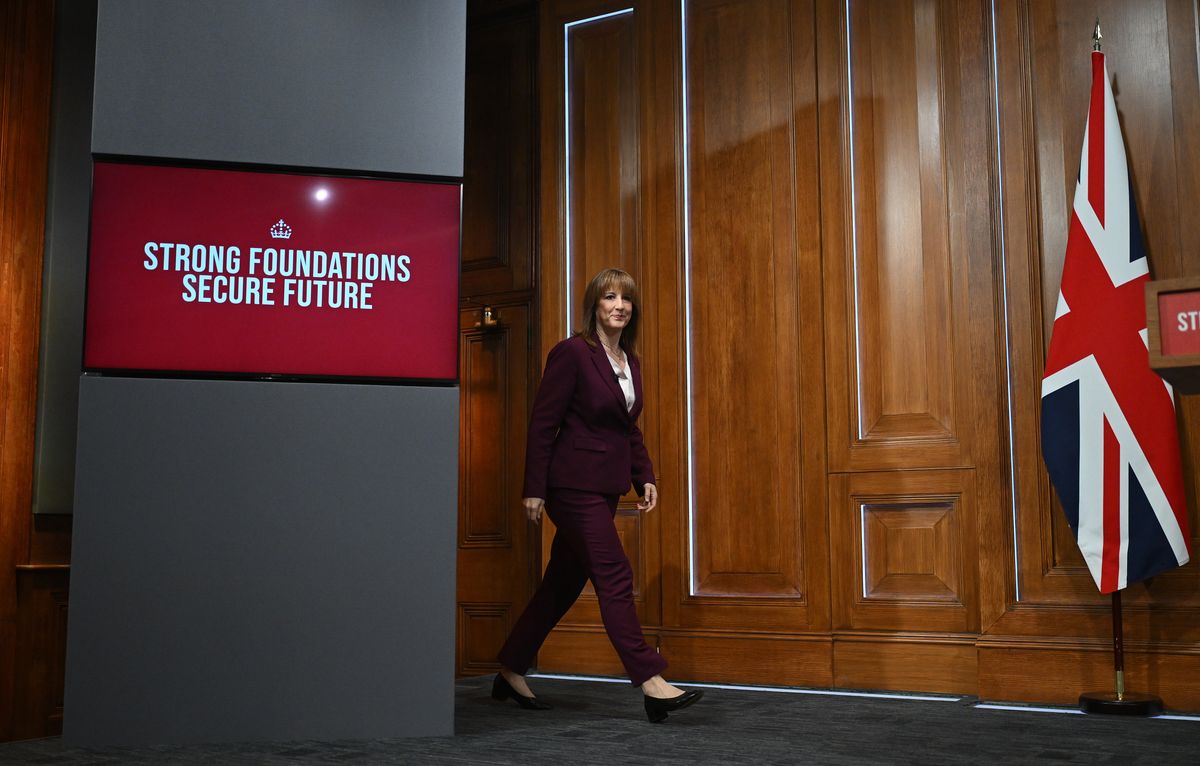LONDON (AP) — U.K. economic growth slowed down to a near standstill in the third quarter of the year after a cyberattack halted production at the country’s biggest automaker, official figures showed Thursday.
The slowdown represents a blow to the British government less than two weeks ahead of a crucial budget that is expected to see taxes rise again.
The Office for National Statistics said that the economy grew by 0.1% between July and September from the previous three-month period. That was down on the previous quarter’s 0.3% increase and below market expectations for a 0.2% rise.
The cyberattack on Jaguar Land Rover was a key reason why growth came in lower than expected. The attack, which saw workers sent home on Aug. 31, halted production in the company’s factories as well as suppliers. Operations restarted in October.
The shutdown rippled through the U.K. auto industry. JLR, which is owned by India’s Tata Motors, employs more than 30,000 people, with its supply chain supporting tens of thousands more jobs.
The impact was evident in the growth performance in September, with overall industrial output down 2% during the month and car and trailer manufacturing plunging by 28.6%, its sharpest fall since the height of the coronavirus pandemic in April 2020.
It is the latest set of disappointing economic data for the government after the statistics agency revealed earlier this week that U.K. unemployment has risen to 5%, its highest level for four years.
Statistics point towards a weakening economic backdrop ahead of the budget on Nov. 26, which the government has sought to blame on international factors, such as the uncertainty caused by U.S. tariffs.
Treasury chief Rachel Reeves would have been hoping that stronger economic growth could help bolster tax revenues and support spending plans.
“At my budget later this month, I will take the fair decisions to build a strong economy that helps us to continue to cut waiting lists, cut the national debt and cut the cost of living,” she said.
Reeves has provided clear hints that she is going to have to raise taxes in order to plug a hole in the public finances. She is widely anticipated to increase the basic rate of income tax, something no British government has done for 50 years. It would also break a key manifesto pledge of the Labour government.
It’s a high-stakes time for the government, which is languishing in the opinion polls barely a year-and-a-half after coming to power and Prime Minister Keir Starmer’s favorability ratings deep in negative territory.
Starmer has said that generating economic growth is his government’s central mission. Since the global financial crisis in 2008, the British economy’s growth rates have been lower than the decades before, and that’s had a knock-on impact on the government’s tax take and its ability to fund public services.
“The next challenge will be to ensure that the upcoming budget supports rather than hinders growth — no mean feat given the scale of fiscal consolidation that is expected,” said James Smith, research director at the Resolution Foundation.
Opposition politicians say Labour has done more harm than good since it came to power, and have pinned the blame largely on Reeves’ budget last year, which saw taxes raised on businesses.
By PAN PYLAS
Associated Press



